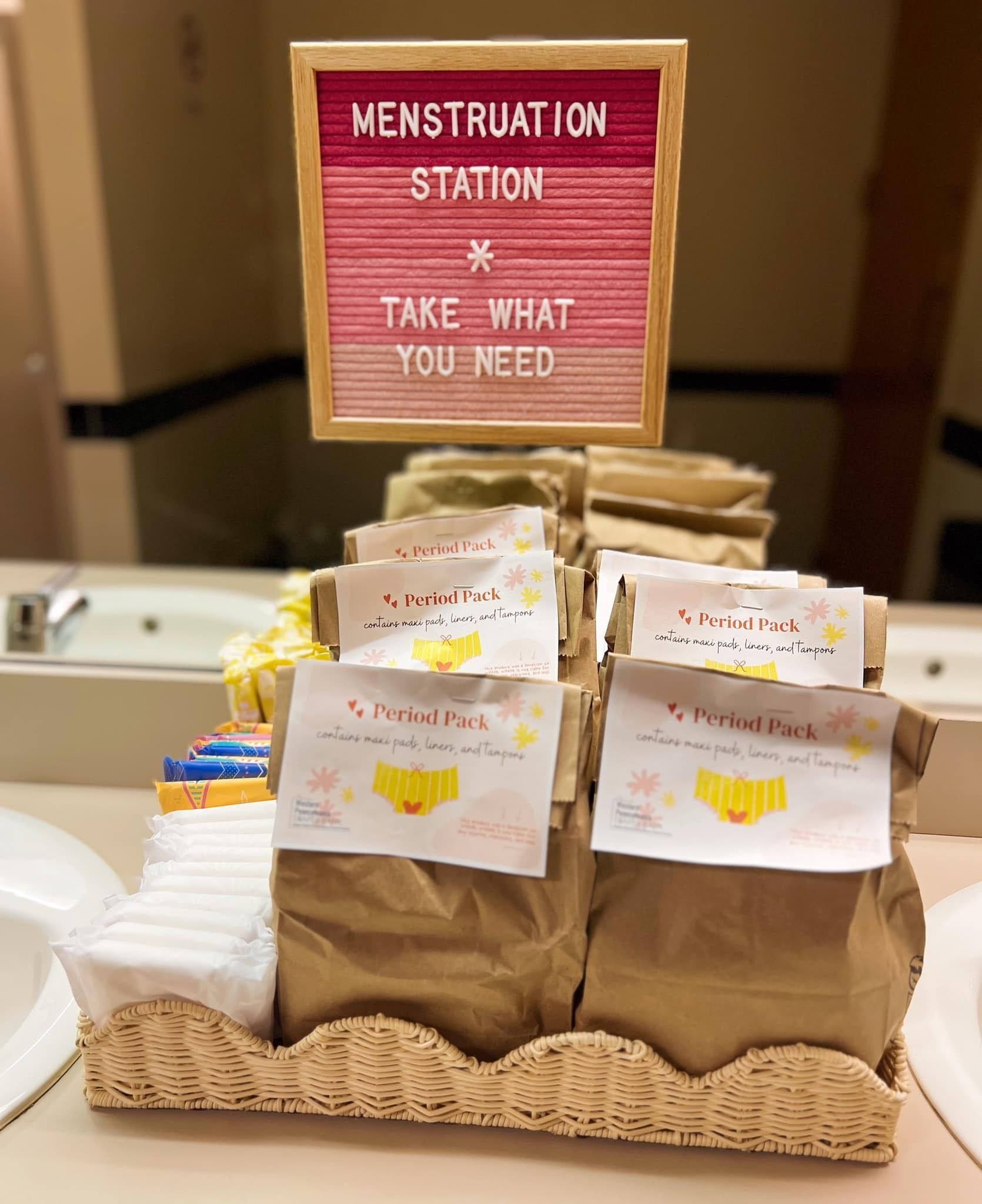
To help women facing period poverty, local libraries are offering stations in their bathrooms that contain period products. These stations are free of charge and are open to anyone who may need them. The Green Tree Public Library introduced a Menstruation Station in the women’s first-floor bathroom earlier this summer. A women can find both individual products as well as period packs at this station.
Green Tree Public Library is a part of the Allegheny County Library Association, which helps to coordinate placing these stations into libraries across the county as well as keeping them supplied. Adaena Tray, Library Director, shares her take on this new program. “We are thrilled to participate in the free period products program. Libraries make excellent distribution centers for getting goods into the hands of those who need them most, where and when they need them. We can reach a large cross-section of the community, and in an atmosphere that is welcoming, discreet, and inclusive."
A study conducted in the United States reported that the COVID-19 pandemic exacerbated period poverty, through the low accessibility and unaffordability of products. It was found that 30% of the respondents had difficulty accessing menstrual products because of the compulsory home quarantine, 29% struggled to purchase menstrual products, and 18.5% struggled to afford any menstrual products during the pandemic.” (Jaafar). Period poverty comes from a lack of an income high enough to afford necessary menstrual products These statistics describe an issue that affects all women, even those in a developed country, because they have to deal with the reality of being unable to afford period products.
Due to the lack of being able to afford period products, many women are finding another solution so that they can avoid spending money. One of these ways is to wear a product longer than is recommended which leads to complications, an increase in infections in women, and Toxic Shock Syndrome. Toxic Shock is a type of infection that is life threating and can cause women to become incredibly ill and require her to speak to a doctor which can increase period poverty.
These menstrual products are being supplied by The Western Pennsylvania Diaper Bank (WPDB) and Sister Friend. The WPADB is responsible for providing a world of support to people who need diapers, period products, incontinence supplies. As a result, they have helped around 900,000 people avoid choosing between food and supplies they desperately need.
Sister Friend is an organization that is very similar to the WPADB in that it provides period products to schools. They also provide education on period health and advocate for the reproductive health of women.
Jaafar, Hafiz, et al. “Period Poverty: A Neglected Public Health Issue.” Korean Journal of Family Medicine, U.S. National Library of Medicine, July 2023, pmc.ncbi.nlm.nih.gov/articles/PMC10372806/.

